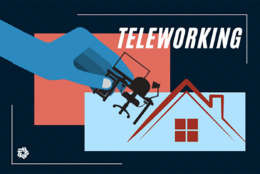Workforce Rights/Governance
-
In today's Federal Newscast: Reports from government employees of race, sex and age discrimination are on the decline. New legislation would create tax benefits for businesses that hire military spouses. And the Air Force liberalizes its tattoo policy.
March 03, 2023 -
OPM said the holdup on issuing final regulations is due to a conflict with rest and recuperation leave, but proponents of the legislation voiced frustrations with the years-long delay.
February 10, 2023 -
The Comprehensive Paid Leave for Federal Employees Act would give feds 12 weeks of paid family and medical leave, essentially replacing the 12 weeks of unpaid leave offered through the Family and Medical Leave Act (FMLA).
February 08, 2023 -
DoD civilians in Japan say they've lost any meaningful access to on-base healthcare over the last several months, and can't get it from Japanese providers. Defense officials say they're examining the problem, but have to prioritize active duty members for limited medical appointments.
February 06, 2023 -
The House is planning a floor vote for the SHOW UP Act, a Republican-led bill that would return the federal workforce to pre-pandemic office arrangements.
January 30, 2023 -
The U.S. Postal Service, like many agencies, has to deal with sexual harassment complaints. According to the Postal Inspector General, while USPS handles them fairly well, it lacks data on how extensive the problem might be.
January 25, 2023 -
When D.C. Mayor Muriel Bowser urged the federal government to either occupy its space or clear out, she touched a nerve. Debate over whether people should mostly be in the office or telework often centers on one issue: Which is better for collaboration and team cohesion?
January 20, 2023 -
Dr. Ron Sanders, the president and CEO of Publica Virtu LLC, explains why more than federal employees need to pay attention to the problems Schedule F and similar efforts could pose to national security.
January 19, 2023 -
To keep patent disputes out of the courts, Congress formed the Patent Trial and Appeal Board a few years back in the America Invents Act. A survey of patent judges conducted by the Government Accountability Office came up with a disturbing finding.
January 18, 2023 -
The new year brought the opening of a new office at the State Department. It's called the Special Envoy for Critical and Emerging Technology. It has a list of responsibilities.
January 13, 2023 -
By learning how to properly leverage their HR data, federal agencies can begin to make real progress on hiring, retention and DEIA goals, setting themselves up for the workforce of the future.
January 13, 2023 -
Agencies need to be more proactive about recruiting and retaining new talent. To do that, they need to update their processes to find potential candidates, keep them engaged, streamline the hiring process, and build a recruitment strategy that maximizes ROI.
January 12, 2023 -
Long controversial, the military vaccine mandate has been killed off by the just-enacted 2023 National Defense Authorization law. So now what?
January 11, 2023 -
New regulations from the Office of Personnel Management will officially repeal several workforce policies that the Trump administration finalized in 2020.
December 02, 2022 -
The Court of Appeals for the Federal Circuit found the government isn't liable for damages when it fails to pay employees on time during government shutdowns.
November 30, 2022















